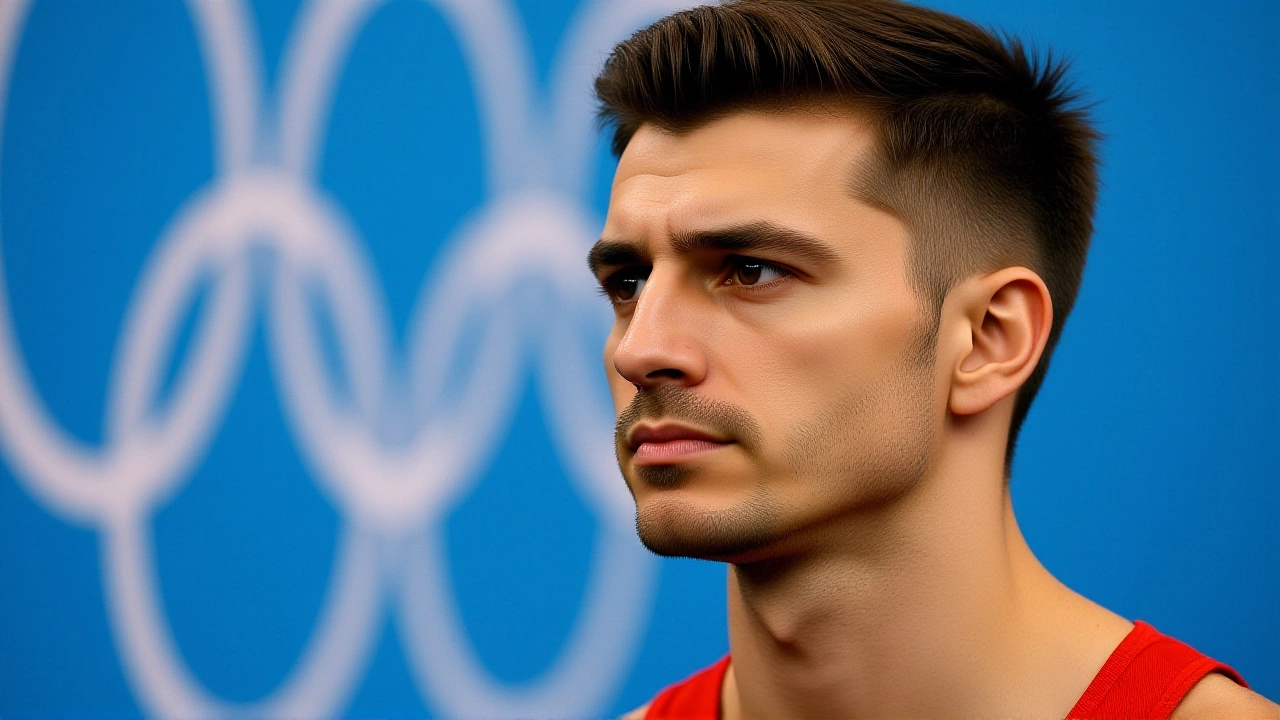- 0
On November 24, 2025, Max Antony Whitlock, the most decorated British gymnast ever, stunned the sports world by announcing his return to competitive artistic gymnastics — just over a year after stepping away following the 2024 Summer Olympics in Paris. The 32-year-old, who retired after a career defined by grit, grace, and gold, is now setting his sights on the 2028 Summer Olympics in Los Angeles. No official competition schedule has been released, but insiders say his training has already resumed at the British Gymnastics National Performance Centre in Lilleshall, Shropshire.
A Legacy Built on Pommel Horse Glory
Whitlock’s career reads like a gymnastics textbook. He’s the only British gymnast to win Olympic gold in an individual artistic event — and he did it twice on the same day in Rio. On August 14, 2016, after claiming his first Olympic gold on the floor exercise, he stepped onto the pommel horse just two hours later and won another. That double gold made him the first British gymnast ever to win two individual Olympic titles in one Games. His three Olympic golds, three bronzes, and 14 total medals across Olympics and World Championships aren’t just numbers — they’re milestones that redefined what British gymnastics could achieve.On the pommel horse alone, he’s unmatched. Two Olympic golds (2016, 2020), one bronze (2024), and five World Championship medals — three golds (2015, 2017, 2019), two silvers (2018, 2023). He’s the most successful pommel horse specialist in Olympic history. And in 2017, he became the first British gymnast to defend a World Championship title, winning gold in Montreal despite a fall in qualifications. That’s the kind of resilience he’s known for.
The Quiet Breaks and the Comeback Pattern
What’s often overlooked is that Whitlock doesn’t just retire — he recalibrates. After Rio, he took three months off. In March 2017, he announced a six-month hiatus, skipping the London World Cup and European Championships. He returned not with fanfare, but with focus — and won gold on pommel horse at Worlds that October. After Tokyo 2020, he stepped back again, then came back to win bronze in Paris 2024. Each time, he didn’t vanish. He re-emerged sharper.“He doesn’t quit,” said one former teammate who asked not to be named. “He just recharges. You can see it in his eyes — when he’s done, he’s done. But when he’s ready, he’s ready.”
Team Legacy and the Next Generation
Whitlock’s impact stretches beyond his own medals. He was part of the British men’s team that finished fourth in Rio 2016 alongside Louis Smith MBE, Nile Wilson, Kristian Thomas, and Brinn Bevan. That team laid the foundation for Britain’s current dominance in men’s gymnastics. Now, younger athletes like 19-year-old pommel horse specialist Tom Lomas are watching Whitlock’s return with awe.“He’s the reason I picked up the pommel horse,” Lomas told British Gymnastics Weekly. “I used to watch his Rio routines on loop. If he’s coming back, maybe I can be in the room with him next year.”
What This Means for British Gymnastics
Whitlock’s return isn’t just personal — it’s strategic. With the British Gymnastics federation facing pressure to maintain its global standing after a dip in medal output post-Tokyo, his presence alone boosts morale, media attention, and funding potential. His history of peaking at major events makes him a low-risk, high-reward asset for the 2028 campaign.“He’s not chasing records anymore,” said former national coach Sarah Johnson. “He’s chasing legacy. And if he makes it to LA, he’ll be the oldest British male gymnast to compete at an Olympic final. That’s not just athletic — it’s historic.”
What’s Next? No Timeline, But Big Expectations
As of November 25, 2025, no competitions have been confirmed. Will he target the 2026 Commonwealth Games in Victoria? The 2027 World Championships in Tokyo? His pattern suggests he’ll wait until spring 2027 to announce his first event — likely the European Championships. But one thing’s clear: if he steps onto a pommel horse in 2028, the world will be watching.Frequently Asked Questions
Why is Max Whitlock’s return such a big deal for British gymnastics?
Whitlock holds 14 major medals — more than any other British gymnast — and is the only one to win Olympic gold in individual artistic gymnastics. His return revitalizes national pride, boosts sponsorship interest, and inspires younger athletes. British Gymnastics has struggled to maintain medal momentum since Tokyo, and Whitlock’s presence alone elevates the program’s profile and credibility on the global stage.
Has Whitlock ever competed after turning 30?
Yes. He won Olympic bronze in the all-around at age 27 in Tokyo 2020 and added a pommel horse bronze at age 31 in Paris 2024. At 32, he’s not just competing — he’s defying age norms in a sport where most gymnasts peak before 25. His longevity is attributed to meticulous physical conditioning and mental resilience, not just talent.
What makes Whitlock’s pommel horse technique so special?
His signature move — the ‘Whitlock’ — is a complex combination of handstands and circles with near-perfect rhythm and minimal sway. Judges award him high execution scores because his form is textbook, even under fatigue. He’s won medals with the same core technique for over a decade, adapting only his choreography. No other gymnast has maintained such consistency at the highest level for 10+ years.
Could Whitlock break any records if he competes in 2028?
Absolutely. He could become the first British gymnast to compete in five Olympic Games (2012–2028), surpassing the record of four held by several athletes. If he wins a medal in LA, he’ll tie the record for most Olympic medals by a British gymnast (15), and if he wins gold, he’ll become the first British gymnast to win Olympic gold in three different Games.
Why hasn’t Whitlock announced his competition schedule yet?
He’s known for strategic timing. After Rio, he waited until October 2017 to return at Worlds. After Tokyo, he competed only in 2024’s Olympic cycle. He’s likely waiting to see how his body responds to full training, avoiding early-season injuries. His team is prioritizing longevity over rushing — a calculated move that’s served him well for over a decade.
Is there any chance Whitlock will coach after retiring this time?
He’s already mentoring juniors at Lilleshall informally, but he’s stated he wants to compete first. Once he steps away again, coaching is likely — especially given his deep understanding of the pommel horse. British Gymnastics has expressed interest in formalizing his role, possibly as a technical advisor for the men’s team. But for now, his focus is entirely on the mat.

